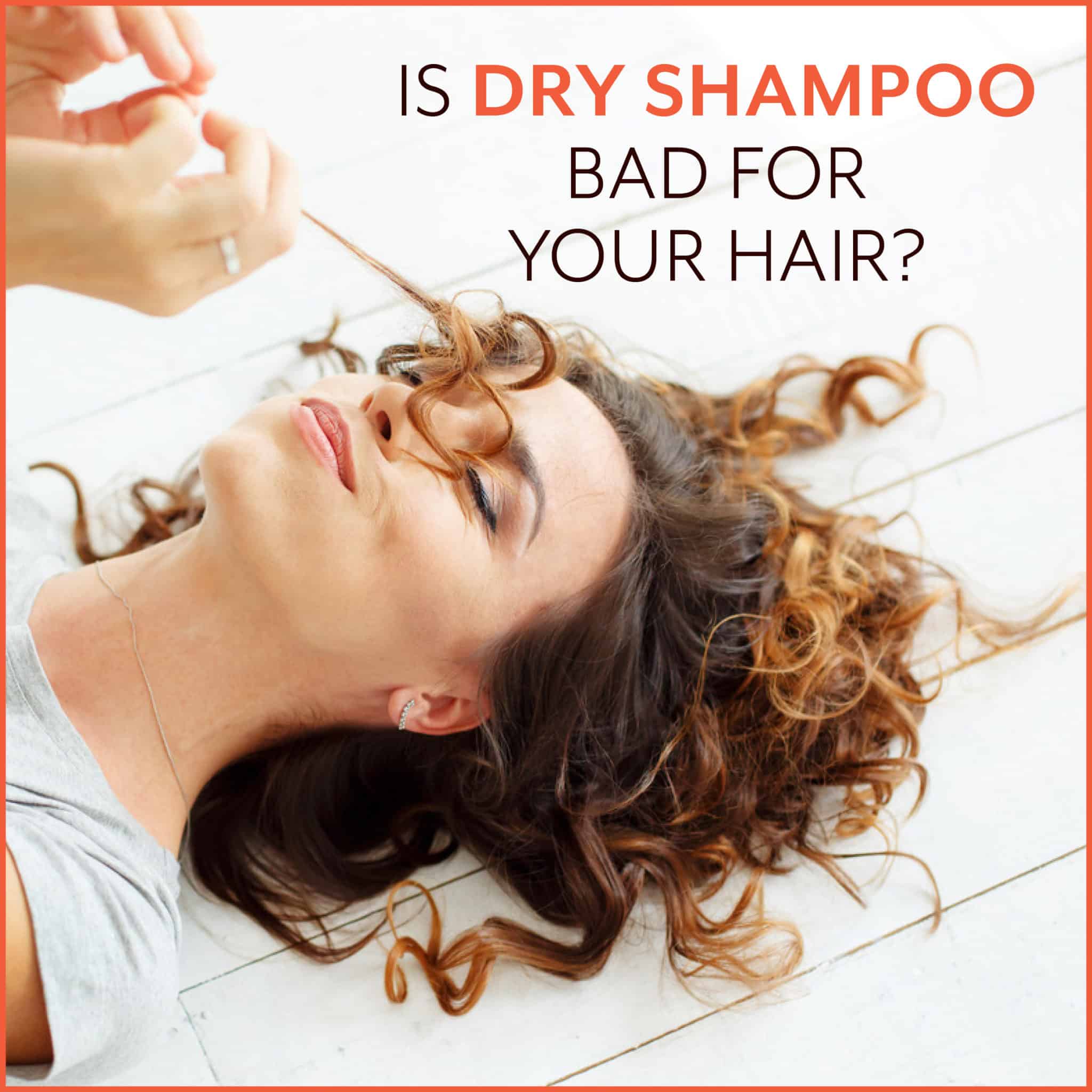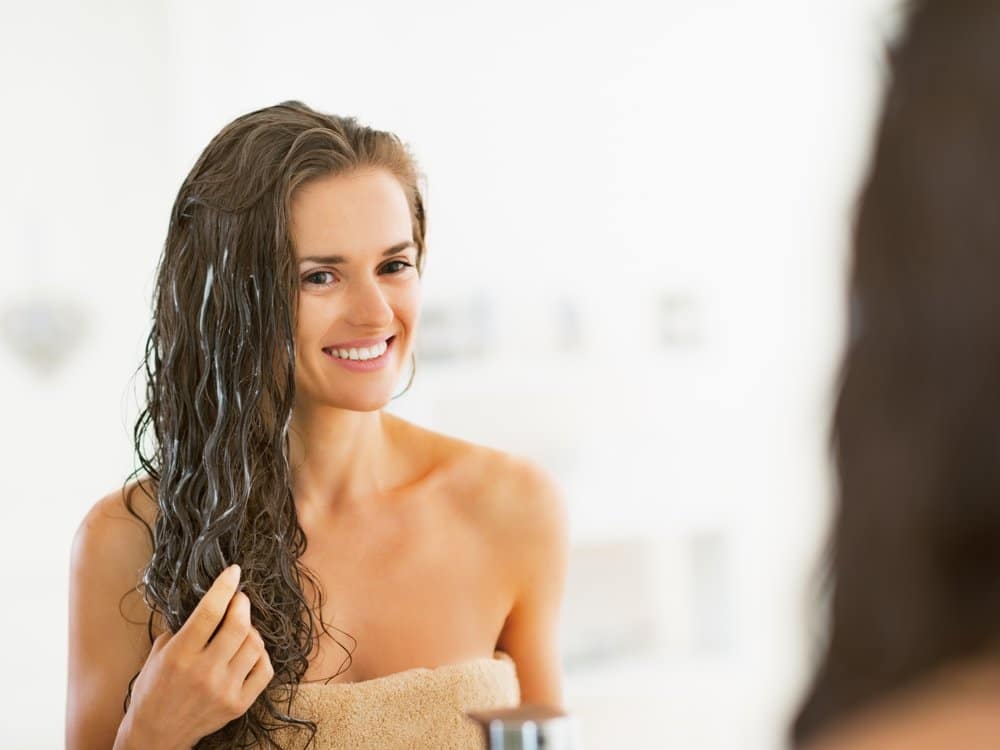Table Of Content

If you prefer the silky feeling (or just the convenience), it's completely fine to use 2-in-1 products. You just may need to add a clarifying shampoo once or twice a week. "The only downside to using a 2-in-1 is that the hair can begin to feel heavy over time," says Cardona. "Occasionally alternating to a clarifying or exfoliating shampoo rather than a conditioning shampoo will let you reap all the benefits of silicones without the unwanted buildup." Take a look at the status of your hair to determine what type of conditioner you should use.

The Function of Conditioners
To prevent over-conditioning your hair, it is essential to use the right quantity of conditioner and rinse it out thoroughly. Introducing a clarifying shampoo or scalp scrub into your regular hair care routine will help to stop product build-up. Conditioning your hair is a crucial step to get voluminous and healthy hair. However, you should do it the proper way to avoid oily and flat hair. Remember that you are coating the hair shafts with one extra layer of product each time you use a hair conditioner.
Sulfate-free Shampoos and Conditioners for Perfect-looking Hair
"It is charcoal-infused, which helps to gently but effectively remove build-up." Shelby Samaria, a New York City-based hairstylist, adds that silicones can give your hair an instant shiny, luxurious feel. The key to deciding whether hair products containing silicone have a place in your routine, she explains, is to get to know what your hair type is and understand why they’re added to hair products in the first place. From hair oils and leave-in conditioners to texturizing sprays and heat protectants, it seems like there's always another hair care product—and step—to add to our routine.
Do Olaplex Hair Care Products Really Cause Hair Loss? - Verywell Health
Do Olaplex Hair Care Products Really Cause Hair Loss?.
Posted: Tue, 07 Mar 2023 08:00:00 GMT [source]
You’re Not Conditioning Regularly
These typically do so with strengthening ingredients like keratin and moisturizing agents. The benefit is less exposure to additives like dyes and fragrance. If your hair has been bleached, colored, or permed, it will have extra wear and tear. But recently, more people have used just conditioner to wash their hair. These products, called co-wash, are slightly different and discussed more below. When selecting a conditioner, it’s most important to pick the right kind for your hair and skin type.

It suits normal to oily hair and helps to control dandruff too. Thomas concurs, adding that when overused, silicones do more than weigh down your hair. Spinnato adds that since silicones are designed to keep environmental aggressors out of the hair shaft, it means they also lock in some not-so-great substances, like oil, dirt, and dead skin cells. While shampoo is formulated specifically to clean off sweat, dead skin cells, and hair products, conditioner makes hair softer and easier to manage. To see your desired results from using conditioner, correct application is essential. “When applying conditioner in the shower, start from mid-lengths to ends, avoiding the roots to prevent weighing down the hair,” Puza suggests.
How to Prevent and Heal Heat Damaged Hair
People with curly or kinky hair might see the best results from silicone-based products. To ensure your shampoo or conditioner is truly free from silicone, it’s best to look over the ingredients list. And if you’re using a form of silicone that isn’t water-soluble, it can be really hard to remove it with a regular wash. Seeing as silicone comes with a long list of upsides, it can be difficult to see how there could be any negatives. The good news is that preventing over-conditioning is one of the easiest tweaks you can make to your routine. It just takes a little more attention to find your hair to conditioner ratio.
Are Keratin Products Bad For Your Hair? Here's The Damage They May Be Doing - The Zoe Report
Are Keratin Products Bad For Your Hair? Here's The Damage They May Be Doing.
Posted: Wed, 15 Dec 2021 08:00:00 GMT [source]
You should use a conditioner every day.
The frequency of using a leave-in conditioner can vary depending on your hair type, condition, and personal preferences. Experts recommend using a leave-in conditioner after each wash or whenever the hair requires additional moisture and Protection. However, some individuals may find that using it every other wash or a few times a week is sufficient.
Different formulations offer different benefits and have different potential side effects. Some Conditioners Can Damage Your HairConditioners are supposed to add nutrients and shine to your hair. By using silicone-based products, though, you're stripping your hair of the natural nutrients—so look for labels marked "silicone-free." The Same Conditioner Won't Work for EveryoneChoosing a conditioner can be difficult, but the best way to make the decision is based on the texture of your hair. And if you have thick, greasy hair, chose a conditioner formulated with less oil.
More on Healthy Beauty
Furthermore, using styling products and moisturizing treatments in addition to a conditioner is another way of over-conditioning your hair. Meanwhile, Thomas explains that people with thin, fine, and straight hair should not use silicones, or if they do, products with a water-soluble silicone such as cyclomethicone are the best options. "Thinner hair types generally have more oil that moves from the scalp to the hair shaft," she says.
It’s lightweight and water-soluble, so it can be easily washed out. You may have a hard time finding the word “silicone” on the back of your shampoo or conditioner bottle. Free to everyone, these materials teach young people about common skin conditions, which can prevent misunderstanding and bullying. Knowing what type of hair you have can help you choose the best conditioner for your needs. When in doubt, consult a board-certified dermatologist to be formally evaluated; they can help direct you toward the right products. "Depending on what other products you are using and certain styling habits," there may be more at play than your choice in conditioner, says Nazarian.
Conditioner restores hydration to your strands — particularly your ends, which tend to get the most dry — as well as smooth your mane. It’s a commonly used product that all hair types can benefit from and should have in a hair care routine. The benefits and uses of your conditioner will vary based on the specific product you’re using. Hydrating, moisturizing, and smoothing are signs a conditioner may be right for your natural curls.
Like any hair care product, overusing conditioner or choosing the wrong formula can lead to damage to your hair and scalp. Most conditioners are formulated with positively charged detergents known as cationic surfactants. Since hair strands are negatively charged, these surfactants bind to them, enclosing each strand's cuticle, keeping it smooth and strengthened. If your hair tends to look oily around your scalp, focus conditioner on the ends of your hair. Avoid the scalp area so you don’t increase oil or clog the hair follicles on your scalp. Because your hair is oily, you don’t need as much conditioner to maintain your hair’s health.
Conditioner is crucial for all hair types, but not every conditioner will work for your hair type. We asked the experts—board-certified dermatologist Rachel Nazarian, MD, and celebrity hairstylist DJ Quintero—how to choose the right conditioner based on hair type. It's not only safe but also highly beneficial for your hair.However, the key lies in proper applying. Overuse or inadequate rinsing can lead to negative effects, such as hair damage. Similarly, choosing a conditioner that doesn't match your hair type or needs might cause dandruff, dryness, or even breakage. If any of these signs are bothering you, try applying conditioner more often.

No comments:
Post a Comment